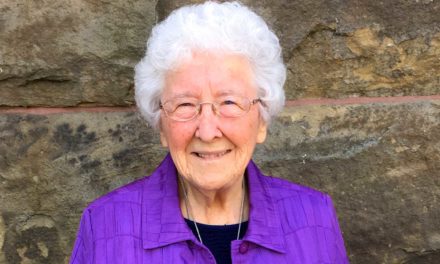The #StigmaEndsWithMe Campaign
By Gord Garner, Community Addictions Peer Support Association (CAPSA)
Addiction impacts Ottawa families more than you think. It’s estimated that over a half a million people in our region are affected by alcohol and drug issues (substance use disorders), either directly or indirectly. So, why is there still such a stigma attached to substance use disorders? Why is there still such judgement heaped on those affected and shame felt among those impacted?
Coordinated out of Ottawa, a newly created national campaign, #StigmaEndsWithMe, endeavours to change all of that by creating a better understanding of substance use disorders (SUD) among the general population and providing more support and better resources for those affected.
Some of this work is already being done locally, on a smaller scale, by the Community Addictions Peer Support Association (CAPSA). CAPSA works at addressing stigma through community engagement and education efforts to change the perceptions and misconceptions of the public and media. You may know us as the hosts of Recovery Day Ottawa, an annual event held, in September, at Ottawa City Hall that brings local resources and people together in one place to educate and celebrate all people and all pathways to improved well-being from substance use and addiction. CAPSA hosts many other events throughout the year, in schools and the community at large, with the message that it is ok to talk about struggling with a substance use disorder and living well with an SUD diagnosis. Our measuring stick is quite simple: if we can’t tell people that we got better without being judged and stigmatized, then we can’t tell people we are struggling and in need of help, in the first place.
Judgement, perception, lack of information and discrimination are getting in the way of progress. The number one barrier in seeking treatment and the services available is the stigma attached to substance use disorders. It stops people from getting help, it affects the amount and quality of services available to support people and it silences family members and communities from demanding more services and better treatments. Often it is based on old beliefs and lack of knowledge about the causes and conditions of substance use disorders.
We are asking people to get involved with educating themselves and changing their language to Person First Language, just as we have done with Mental Health. A recent Harvard study showed that referring to a client as a “drug abuser” rather than a “person with a substance use disorder” significantly impacted the quality of the care they received and their ability to seek help at all.
For this reason, CAPSA, in collaboration with The Canadian Centre for Substance Use and Addiction, will hold workshops and training events across Canada, sharing evidence that stigma is real and that inappropriate language and misinformation is hurtful and misrepresentative of those with a substance use disorder. We envision a world where all individuals affected by addiction have access to the support they need when seeking help, without stigma or discrimination. Unfortunately, we have much work to do at this juncture.
We urge you to get involved in our campaign and watch our video on Youtube titled #StigmaEndsWithMe. Look for information later this summer on training sessions and workshops to help reduce the harms of stigma for those suffering and their families. It is imperative that we realize that a substance use disorder is not a moral failing but rather an illness that affects a person’s ability to make healthy choices.
Gord Garner is the driving force behind the Community Addictions Peer Support Association – a partner of Serenity Renewal for Families, an Alta Vista Charity that assists families affected by addiction and other impactful issues. To donate to families needing assistance or to find out more about volunteering, call 613-523-5143 or visit serenityrenewal.ca.




